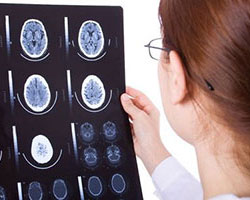 Definition
Definition
According to Brain Injury Canada, acquired brain injury is "an injury to the brain, which is not hereditary, congenital, or degenerative. It can be caused by a traumatic blow to the head, severe rotation of the neck or whiplash, or even lack of oxygen." It is estimated that at least 12% of the general population will sustain a brain injury at some point in their life, with the highest incidence affecting adolescents and young adults. 1 2
Some common causes of brain injury include motor vehicle crashes, falls, and sports-related impacts. A moderate to severe brain injury can have serious long-term consequences for the victim, and may require rehabilitation that may include physical, occupational, and/or speech/language therapy, psychology/psychiatry, and social support. 3
A concussion is a type of brain injury, often referred to as mild traumatic brain injury (mTBI). Although concussions are considered to be mild in nature, the consequences of an mTBI can have a significant impact on an individual. Post-concussive symptoms can include the following: 4
While some of these symptoms are most apparent in the acute phase following the injury, Carroll et al. (2004) notes that some post-concussive symptoms can persist for a few weeks or, in some cases, up to a year. Recovery can take even longer for individuals with a history of previous concussions, or for those who sustain another head injury while still in the recovery phase of a previous concussion. 5